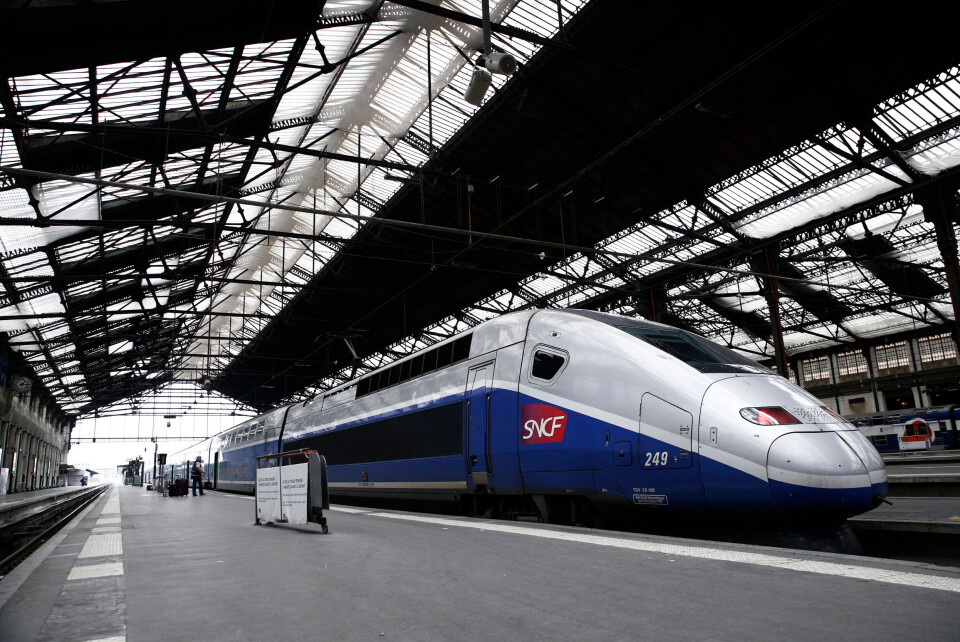-
White storks make strong return in France via nest ‘platforms’ and clipped wings
The Ligue pour la Protection des Oiseaux shares the conservation challenges in saving these birds from extinction
-
Hosting scheme in south-west France lets newcomers sample lifestyle
Households in nine Dordogne communes volunteer under Mes Nouveaux Voisins scheme
-
French boulangeries demand right for staff to work on May 1 so they can open
Artisan bakery owners can work but employees cannot, while certain industrial bakeries are allowed to remain open with workers
‘PSG football club’s arguments for flying Paris-Nantes do not hold’
Rail experts talking with The Connexion dismissed the security and timetabling issues used to justify players flying rather than taking a TGV

Paris Saint-Germain football players could have chosen to take the train over the plane to travel from Paris to Nantes, several railway industry professionals have told The Connexion following the controversy over the club’s decision to fly rather than take a TGV.
Their comments come after PSG coach Christophe Galtier said that the club was looking to ‘travel with sand-yachts' in a sarcastic response to a question at a press conference ahead of the September 6 Champions League match against Juventus FC.
The question was posed after TGV-Intercités CEO Alain Krakovitch lamented the fact that PSG players flew to Nantes for a match on Twitter.
He reminded the club that SNCF has already offered to carry out such journeys in a “TGV adapted to [the players’] needs, for our common interests: safety, speed and eco-friendly mobility.”
Read more: Planes, trains, cost, carbon - how do you travel to and from France
Mr Galtier’s comment – along with a laugh from PSG striker Kylian Mbappé’ – sparked nationwide outrage, with throngs of comments from environmental associations, politicians and journalists.
His reaction was seen as poorly timed and interpreted as reflecting a lack of concern for environmental issues by unaffected football professionals.
Mr Galtier later apologised for his sand-yacht “bad joke” that “came at the wrong time.”
“SNCF can offer private first-class carriages as well as other premium services to clients,” said Paul Bilaine, SNCF’s press relations representative, adding that the company has worked with other French football clubs in the past, including Stade Rennais FC.
The offer is part of the ‘Train Spéciaux’ scheme, through which a client can book parts or the whole of the train. Mr Bilaine said that the company can also cordon off special areas and deploy increased security.
Mr Bilaine said prices sat around a few thousand euros, adding that SNCF does not communicate with more detail on the cost since it varies from offer to offer.
The Connexion contacted PSG to ask whether the flight it took was private and if the club regretted not choosing to travel with SNCF, but has not received a response.
“Discussions have been underway with PSG,” said Mr Bilaine.
SNCF had Queen Elizabeth II as traveller
While security, training and scheduling reasons could help to explain why football players travel more by plane than train, the Paris-Nantes journey did not seem to be overly complicated, according to rail experts.
“SNCF has had Queen Elizabeth II and President Macron as travellers,” said Marie-Hélène Poingt, editor-in-chief of railway newspaper La Vie du Rail.
She dismissed the argument that it was impossible to transport high-profile players such as Lionel Messi, Neymar or Kylian Mbappé by train.
Another argument often brought forward in favour of plane journeys is that no overnight trains are scheduled as SNCF run out-of-hours maintenance works on old lines.
No train was scheduled from Nantes to Paris after 21:00 on the Saturday of the match.
To make the train journey work, players would also have needed at least one Paris train station to be open but maintenance work was also affecting these terminals.
“Games are listed on a calendar earlier enough so that the SNCF can organise itself and open lines and stations,” said Ms Poingt in response to this argument.
Franck Tuffereau, general representative at the Association française du train, was more doubtful of SNCF’s ability to open lines at night and to ensure player security, adding that it was “not impossible but complicated.”
He also likened the controversy of car travel in the Paris region, which is one of France’s most polluted.
“Overall car pollution in Ile-de-France is way higher than a roundtrip flight from Paris to Nantes,” said Mr Tuffereau.
Mr Tuffereau said people should have no issues with restrictions being imposed on car drivers commuting to Paris if they are in favour of travel restrictions being placed on football clubs like PSG.
French people may soon begin to see the effects of travel restrictions for environmental reasons following a law passed in August 2021 banning internal French flights when a direct train or bus service lasting less than two and a half hours is available.
The law, passed by both the National Assembly and the Senate, has, however, is currently on hold after French airports, reunited under the Union des aéroports français, filed a complaint to the European Commission.
PSG players would however not be subject to this as it only applies to public - and not private - flights.
“We hope this controversy will get things moving,” said Mr Bilaine.
Read more
Train prices, EasyJet cancellations: Nine France travel updates
French golf course holes cemented over by climate activists
Stade de France chaos an ‘inevitable fiasco’ says French Senate
























